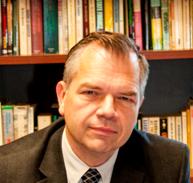There are likely more Christian entrepreneurs in China than any other country in the world. How can this be? Isn’t China persecuting Christians? How does Christianity function within China? What is the role of entrepreneurs and business people?
A starting point is to understand the nature of two streams of believers within China. First, there is the “three-self” church, labelled after the “three principles” originated over a century ago: self-governance (no external control), self-support (i.e., financial independence from foreigners) and self-propagation (i.e., indigenous missionary work). These basic principles were modified to include the “Three-Self Patriotic Movement” (TSPM), which began in 1951.
The TSPM promoted a strategy of “self-governance, self-support, and self-propagation” in order to remove foreign influences from the Chinese churches and to assure the communist government that the churches would be patriotic to the newly-established People's Republic of China. The movement began formally in 1954 and allowed the government to have significant influence over much of organized Christianity.
From 1966 to 1976 during the Cultural Revolution, religious freedoms were essentially eliminated, including even the TSPM. This led to the emergence of the so-called “house churches,” which are not registered with the government, thus not subject to official control and meeting in small groups in houses. They are often regarded as the true bearer of evangelical Christianity.
The growth of the Chinese house church movement during the Cultural Revolution was a result of all Chinese Christian worship being driven underground for fear of persecution. In order to assert control over this growing trend of "unregistered meetings", in 1979 the government officially restored the TSPM after thirteen years of non-existence.
In 1993 there were 7 million members of the TSPM with 11 million affiliated, as opposed to an estimated 18 million and 47 million "unregistered" Protestant Christians respectively. Today, Christianity is a significant presence in China. Some estimate at present that ten percent of the population may be Christians.
The two streams of Christians in China vary beyond organizational orientation. The TSPM is more appealing to a broader spectrum of society, and often poorer classes. Its leaders are typically less educated and home-grown. By contrast, the house churches often attract professionals and business people, often educated overseas. They have a similar state of mind as professionals in the Western world. “I am materially successful, yet unfulfilled—what’s next?”
The government wishes to exercise control over all faith-related gatherings and movements, as evidenced by treatment of the Falung Gong movement. With respect to Christianity there is the added element of lingering suspicions regarding Christianity ties with past Western exploitation of China. The Chinese government has a bureau of religious affairs to monitor religious groups from the standpoint of orderly and law-abiding conduct. They do not want unrest incited against the government.
The government needs to play a delicate balancing act. They realize that faith, and Christianity, is important to a great number of its citizens. They realize that Christianity reinforces important ethical values consistent with many of its social policies, such as caring for poor in light of the great disparity of wealth in China. At the same time, their goal is to maintain power, and thus they must monitor large, organized groups of its citizens.
The government clearly asserts its power when deemed necessary. There are regular allegations of systematic persecution against Christians associated with the House Church movement and other unregistered Christian organizations in China. .
The attitude of the government towards unregistered Christian organizations differs regionally, however, with some regions restricting their activities more vigorously and other regions treating such organizations similarly with the official Three-Self churches
How does faith grow in China? Full-time ministry workers are not permitted for residency in China. By contrast, China is eager to attract foreign experts and knowledge workers. George So, a Canadian-educated Hong Kong Chinese, is one example of how to make a difference in China. George So is a Hong Kong-based executive with various business and government relationships throughout China.
George is an active member of the Full Gospel Businessman’s Fellowship in Hong Kong and throughout Asia. He and his Full Gospel colleagues can host and organize banquets, with government knowledge and consent, and share their personal testimony. They cannot speak as a representative of an international Christian body, but they can introduce their faith as important to them.
They have seen a great impact among the Chinese they interact with. Increasingly, influential entrepreneurs and government officials are taking a stand for their faith. In some instances, entrepreneurs are building chapels on their premises and financing the construction of large churches in their communities. Universities are open to the study of Christianity.
Significant societal changes are occurring in China. The country’s government is managing a burgeoning economy, with a balance of Communist ideal and free market principles. At the same time, it is trying to shape its society. The government is wrestling with how to deal with the spread of Christianity throughout its territory. While there is state control, it is unevenly applied.
In such an environment there are exponential and strategic opportunities for Kingdom impact. Of particular relevance is that Christian business people and entrepreneurs will have an opportunity to make a huge impact as they have the leverage and credibility to open doors.
The massive potential for the future growth of Christianity in China will only be realized through the efforts of business people and entrepreneurs—both domestic and overseas—who recognize the harvest before them. They are the key to China’s spiritual future.
